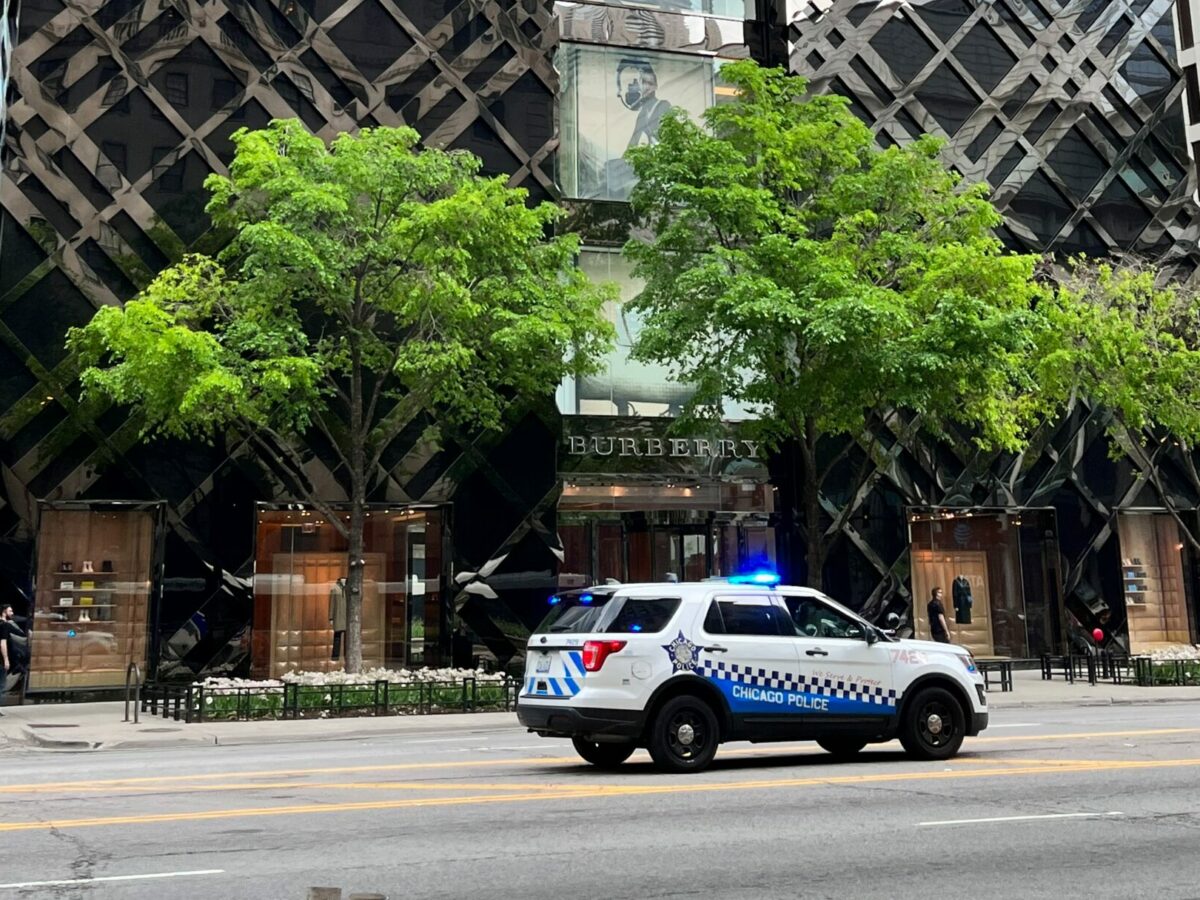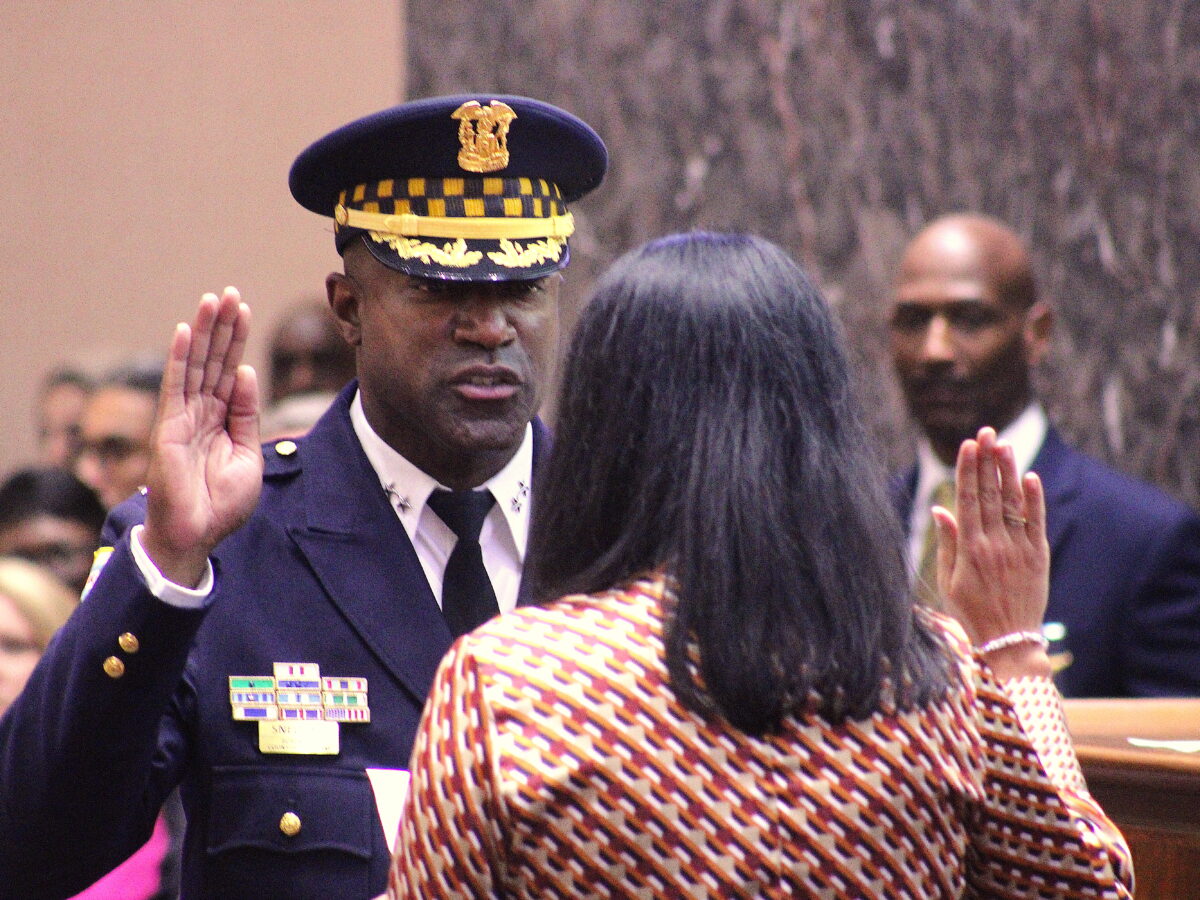After a months-long process to set policies around everything from conducting meetings to vetting applicants, the Police District Councils nominating committee opened applications for the seven-seat Community Commission for Public Safety and Accountability (CCSPA) on January 8.
The deadline to apply is February 7. On March 8, the PDC nominating committee will meet to select nominees, whom the mayor has until April 7 to choose from.
The nominating committee includes one representative from each of the city’s twenty-two Police District Councils (PDCs). Each PDC consists of three members who took office in May 2023. Elected in February’s municipal election, the PDC members are the first to ever hold that office. The CCPSA’s current interim commissioners were nominated by the City Council and appointed by former Mayor Lori Lightfoot in August 2022. Permanent commissioners, once nominated by PDCs and selected by the mayor, will serve four-year terms and be paid monthly stipends of $1,000.
In 2021, City Council passed the Empowering Communities for Public Safety (ECPS) ordinance that established the CCPSA and PDCs after years of work by organizers, some of whom are now serving as district councilors. Other councilors were endorsed by the Fraternal Order of Police and some are former officers. The ordinance requires the nominating committee to suggest a minimum of fourteen names to the mayor, who has thirty days to choose seven to forward to the City Council for approval.
But it has scant details on what the nomination process should look like, which left the task of designing the vetting and nominating process up to the new district councilors. Most are brand-new to government and were guided through meetings by CCPSA staff.
“It required us doing multiple things at once. We’ve had to approve an application, decide how to evaluate applications to choose candidates to interview, and determine what criteria are most important to see in the next Commission,” 19th (Town Hall) PDC member Sam Schoenburg, who is on the nominating committee, told the Weekly. “Meanwhile we’ve had to figure out how to operate as a new public body and deliberate among ourselves to make progress. Given that this is the hardest this process will ever be, I’ve come away from every nominating committee meeting impressed by the dedication and thoughtfulness of my fellow district councilors. We are a diverse bunch, but through our differences, we’ve managed to arrive at a common direction and set of values that makes me confident this is a process we can all be proud of.”

The CCPSA has several responsibilities outlined in the ECPS ordinance. It nominates candidates for police superintendent, the Police Board, and the chief administrator of the Civilian Office of Police Accountability (COPA), which investigates allegations of officer misconduct. Each year, the CCPSA sets goals for each of those positions and evaluates their performance during the previous year. It can fire COPA’s chief administrator for cause and hold hearings about the superintendent and police board members where a vote of no confidence by commissioners would trigger City Council hearings and a vote on whether to retain them.
CCPSA’s oversight power extends to setting policy for the police department as well. The commission can draft general orders, but not special orders or policies covered under the federal consent decree established in 2019 in response to the 2014 police murder of Laquan McDonald.
During their eighteen months in office, the interim CCPSA commissioners have used their policy-setting powers to achieve a number of reforms, including several measures long sought by organizers.
In perhaps their most significant move, the commissioners voted unanimously to abolish the police department’s notorious gang database, which activists criticized as being racist and riddled with errors, last year. Tens of thousands of people were listed in the database. The youngest person listed in it was nine years old, and the oldest was seventy-nine, according to a 2019 audit by the city’s Inspector General. CCPSA President Anthony Driver’s father was listed in the database. At a public meeting last January, Driver said the database contributed to a pattern of the Chicago Police Department (CPD) focusing on the wrong issues. “The gang database as we know it is a racist policy. It is a policy that harms people,” he said in remarks at that meeting. “My father is in the gang database and he has never been in a gang a day of his life.”
In November, the CCPSA unanimously changed a CPD policy to prohibit officers from associating with extremist groups such as the Proud Boys and Oath Keepers, both of which were implicated in the January 6, 2021 insurrection. Nine CPD officers were identified as Oath Keepers members by a Sun-Times and WBEZ investigation. At least one officer has been identified as a member of the Proud Boys.
CPD superintendent Larry Snelling, who was appointed by Mayor Brandon Johnson in September, is the first police chief to be nominated by the CCPSA. The entire process was unprecedented in that civilian oversight was central to it. At a public meeting ahead of his appointment, several members of the Police District Councils’ progressive caucus, an alliance of councilors from multiple PDCs, grilled Snelling about issues such as Chicago’s mental-health crisis co-responder program and asylum seekers then staying at police stations.
Applications for the CCPSA are open until noon on Wednesday, February 7. To be eligible, applicants must be Chicago residents for the last five years and have five or more years of combined experience in law, public policy, social work, mental health, psychology, public safety, civil rights, community organizing, or advocacy for marginalized communities. They cannot have been employed by CPD, COPA, or the Police Board in the last five years. Two commissioners must be between the ages of eighteen and twenty-four.
More information on qualifications and how to apply can be found at bit.ly/CCPSA_Apps.
Jim Daley is the Weekly’s investigations editor.




